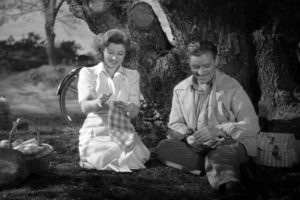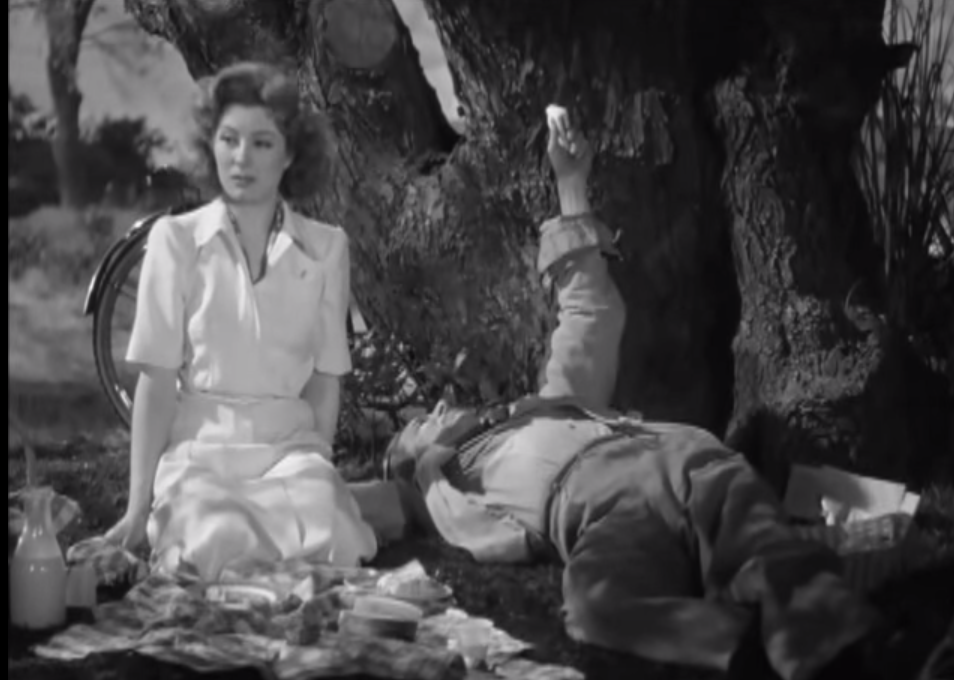LeRoy’s Random Harvest picnic is phony. (It’s also original to the screenplay.) Smithy and Paula sit on fake grass beside an artificial stream with real goldfish. It’s props like these Nathaniel West had pulverized in his Hollywood satire The Day of the Locust. “On a lawn of fiber,’ West writes, “a group of men and women in riding costumes were picnicking. They were eating cardboard food in front of a cellophane waterfall.”
When Paula gives him some mail, it’s an editor’s acceptance of a story he’s written with a check. Smithy is ecstatic. When he leans over and says to Paula, “I think I’ve fallen in love with you,” the audience gushed. Smithy is so excited that he leans back, raises his hand, and says he’s hungry. Paula, an incurable romantic, demands a kiss. 
LeRoy’s wicker basket contains sandwiches wrapped in gingham cloth placed on a gingham blanket. They sip milk from a straw.
*Hilton’s sappy novel tells the tale of a discreet sexual relationship between veteran Charles Rainer, who calls himself Smith, and Paula Ridgeway, a music hall performer. The novel’s central problem is that Rainer/Smith suffers from combat trauma and amnesia and only knows his present life with Paula. But when Rainer is jolted by an automobile, he regains his old memory and sheds the new and, with it, his life with Paula. Eighteen years later, Rainier starts remembering Paula and retracing the past. He visits the site of their picnic tryst, where Paula, following behind, finds him and, rushing into his arms, cries, “Oh, Smithy—Smithy—it may not be too late!”
Of course, not.
Featured Image: Ronald Colman as Charles Rainer alias Smith and Greer Garson as Paula Ridgway
See Mervyn LeRoy. Random Harvest (1942). Screenplay by Arthur Wimperis, George Froeschel, and Claudine West is based on James Hilton’s novel; James Hilton. Random Harvest. London: Macmillan, Nathaniel West. The Day of the Locust. New York: New Directions, 1939

